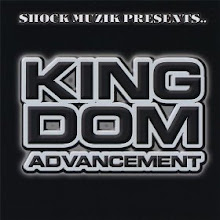Chap. 3
[1-10] Peter heals a lame man: Peter and John were going down to the temple in the ninth hour to pray when they come across a lame man (who was over forty years of age--see 4:22who usually lies in front of the temple to ask alms of people going in. Peter looks at the man and says that he does not have any money but what he does have take in the name of Jesus and the man immediately rose up and walked. This event is quickly drew attention because of the fact that most people in fact knew that the man that was dancing around had been lame since birth. The people were filled with amazement.
Note: ninth hour is roughly 3 P.M.
Note: alms is a type of money gift to the poor
[11-16] Peter’s second sermon (1): Peter seizes the opportunity of having the crowds around him in the portico (which is along the Eastern wall of the temple) and began to speak. He questions why the Jews are in disbelief at the sight of the healing of the lame man and then questioned why they think it was of their power. Peter then gives all credit to God. He again reminds the Jews of how they let a murderer go instead of the beloved son of God. But this murder that they committed, as told by Peter, was to no avail because the “Author of life” was not held by death and to this all of the crowds bore witness to.
Note: In verse 13, the Greek word for ‘glorified’ is the word ‘doxazo’ which literally means “to magnify, praise, clothe with splendor.” God, the father, has seated Christ at his right hand magnifying him beyond imagination clothing him in splendor with in the heavenly places,
Note: In verse 15, the Greek word for ‘Author’ is ‘archegos’ which literally means “chief leader, prince, author, on that takes the lead in everything.” Peter, in verse 15, calls Jesus the author of life and the prince over all. Upon his resurrection, Christ has made himself predecessor and chief, whom we should be overjoyed to follow his lead in establishing a kingdom on this Earth.
[17-26] Peter’s second sermon (2): dOnce again, Peter uses the Law and the Prophets to put up a compelling argument before the Jews. Peter starts by reminding the Jews of their responsibility for the death of Christ (v.11-16). Now Peter sympathizes with the Jews, proclaiming that they acted in ignorance (which can be translated “lack of knowledge”). This ignorance, though under the law lightens punishment, does not by any means excuse responsibility. Continuing to sympathize, he gives evidence from the prophets that it had been foretold that God’s chosen servant must suffer (see Isaiah 53). Peter calls the people listening to repent and turn from their wickedness which has caused the slaughter of the lamb. He points to the end when Christ will restore all things making them even better than before the fall of men (Romans 8 20-21). Peter then exclaims the evidence as given by the prophets beginning with Moses of how each one points to the Holy Prophet (i.e. Jesus). Through which we have the forgiveness of sins. God raised up his servant and sent him to the Jews first in order that they might be blessed in the turning from their wickedness (v.26)
Note: In verse 17, the Greek word for ‘ignorance’ is ‘agnoia’ which can literally be translated as “lack of knowledge.”
Timeless Principle: Paul echoes time and time again about the ignorance that we all once lived or are living in a darkened state of mind becoming foolish in our thinking and deprived in heart (e.g. Ephesians 4:18, Ephesians 2:3, Romans 1:18-23, Titus 1:16, by Peter in 1 Peter 1:14, just a few). We all are irresponsible and have turned away from the God of the universe and in doing so trading the glory of God for the passions of our flesh and are in no way better than the very hands that drove the metal through the wrists of the Lord’s servant. We are deprived and incapable of any good work. Thankfully God being rich in mercy sent his son to Earth in the form of a man to bridge the gap for us to him and in doing so paving the way for us and the Earth to be made new. Though his blood and in his blood alone are given the right to turn from our previous wickedness and receive this great gift given by the father of life.
“And you, who were dead in your trespasses and the uncircumcision of your flesh, God made alive together with him, having forgiven us all our trespasses, by canceling the record of debt that stood against us with its legal demands. This he set aside, nailing it to the cross. He disarmed the rulers and authorities and put them to open shame, by triumphing over them in him.”
(Col 2:13-15)
*19-21 [chyea]

No comments:
Post a Comment